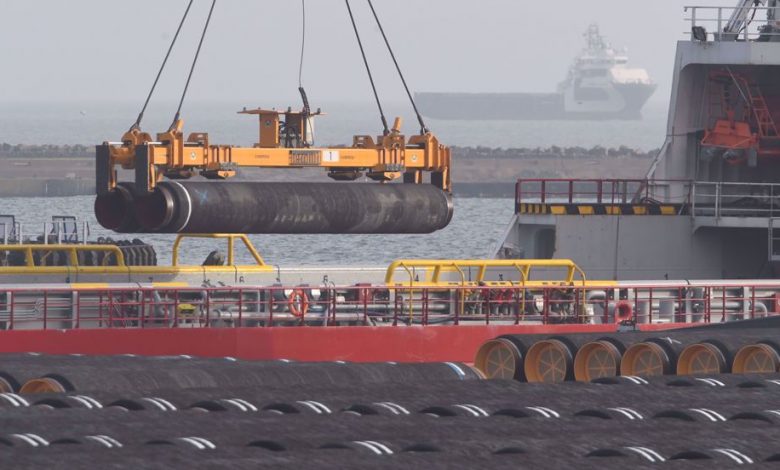Iran on Nord Stream 2: US bully now biting EU allies with sanctions
Iran has slammed a US plan to slap more sanctions on a pipeline designed to deliver Russian natural gas to Germany, calling on European Union countries not to succumb to Washington’s bullying and stand against its “aggressive law-breaking.”

Foreign Ministry spokesman Abbas Mousavi was reacting, in a tweet on Monday, to a bill under discussion in US Congress that would expand sanctions on the $11-billion Nord Stream 2 pipeline, which consists of two parallel lines each stretching 1,230 kilometers along the Baltic Sea from Russia to northern Germany.
On Thursday, the bill — titled Protecting Europe’s Energy Security Clarification Act — was approved by the US senators. In order to become law, it needs to also be passed in the House of Representatives, and then signed by President Donald Trump.
If approved, the measure widens the sanctions in the existing law to include any entity that provides port facilities, insurance, or tethering services for the project as well as any firm that certifies Nord Stream 2 for operation.US senators to announce sanctions bill on Russia’s Nord Stream 2 gas pipelineUS senators are announcing a bill this week which aims to expand sanctions on a Russian gas pipeline project known as Nord Stream 2.
Mousavi further highlighted Iran’s repeated warnings against sitting idly by in the face of US bullying and reminded Europe that “a bully will get bully-er if you succumb.”
“The American bully now bites its EU allies. The US habit of aggressive law-breaking will only lead to global chaos,” warned the Iranian official, calling on the Europeans and the entire world community to “rise up against this bully.”
Germany has criticized the American bill, with its Foreign Ministry saying in a statement that “new sanctions would constitute a serious interference in European energy security and EU sovereignty.”
The first round of US sanctions forced Swiss-Dutch company Allseas to pull out of the project in December 2019, leaving Russia to send its own vessel to the Baltic Sea in an effort to lay the remaining 160 kilometers of the pipeline.
The United States claims that the gas pipeline undermines Ukraine and strengthens Russia’s grip on Europe’s energy industry.
Moscow, however, says Washington is actually seeking to block the project in a bid to export more US liquefied natural gas to Europe.







